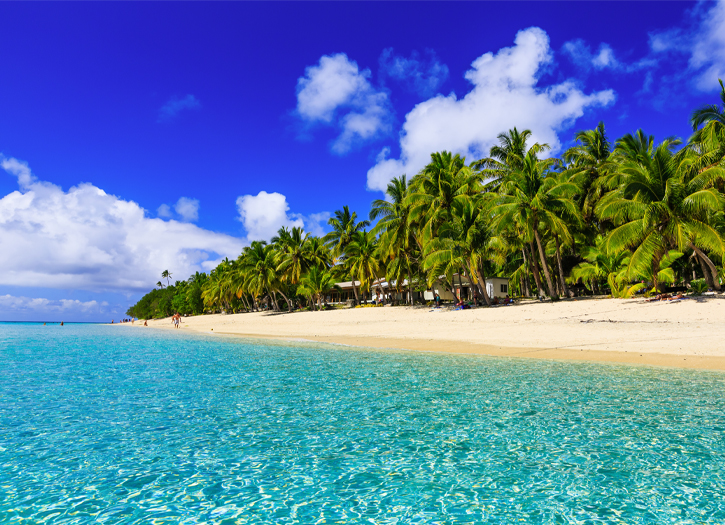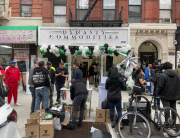The COVID-19 pandemic in Fiji is part of the ongoing worldwide pandemic of coronavirus disease 2019 (COVID-19) caused by severe acute respiratory syndrome coronavirus 2 (SARS-CoV-2). The first case of the disease in Fiji was reported on 19 March 2020 in Lautoka. As of 8 September 2020, the country has had a total of 33 cases from the islands of Viti Levu and Vanua Levu.
On 3 February, the Government of Fiji toughened border security. Borders were closed to foreign nationals who have been in mainland China within 14 days of their intended travel to Fiji. Measures to maintain a hygienic environment and screening ill passengers will continue to be taken in-flight to further minimise any risk.On 15 March, Prime Minister Frank Bainimarama had announced that from 16 March cruise ships will be banned from berthing anywhere in Fiji and international events will not be allowed in Fiji. Government ministers and staff will be restricted from travelling overseas.
The Minister for Education, Heritage and Arts Rosy Akbar in consultation with the Prime Minister announced that the national term one school holidays that were initially scheduled from 20 April to 1 May would be brought forward, to 23 March to 3 April. Fiji Airways suspended all international flights until the end of May, with the exception of twice-weekly services between Singapore and Nadi.Fiji Airways had suspended all Singapore and Hong Kong flights after the two countries introduced border restrictions.. Prime Minister Frank Bainimarama announced that Nadi International Airport would shut down from 26 March and all local shipping services would cease from 29 March.
On 27 March, Prime Minister Frank Bainimarama announced a nationwide curfew from 10 p.m. to 5 a.m. that would take effect on 30 March.On 30 March, Minister for Education, Heritage and Arts Rosy Akbar announced that the school holidays would be extended for another two weeks until 17 April.On 2 May, Prime Minister Frank Bainimarama confirmed two additional recoveries with a 78% recovery rate.On 8 May, Fiji Airways extended all flight suspension till the end of June due to the prolonged impact of the COVID-19 pandemic.
On 21 June, Fiji announced the relaxation of the COVID-19 restrictions as part of its efforts to restart the economy. Prime Minister Frank Bainimarama announced new nationwide curfew hours from 11:00 p.m. to 4:00 a.m. that came into effect on 22 June. Social gathering numbers, which also include gatherings at weddings, funerals, cafes, restaurants and worship, were increased from 20 to 100 people. Gyms, fitness centers, cinemas and swimming pools were re-opened on June 22, however nightclubs remained closed. Schools were re-opened for year 12 and 13 students on June 30, and universities could also re-open for face to face classes.On 13 October, the Ministry of Health and Medical Services confirmed two COVID-19 recoveries.
On 18 March, the Reserve Bank of Fiji reduced its overnight policy rate (OPR) and predicted the domestic economy to fall into a recession after decades of economic growth.GDP is expected to contract severely in 2020, with the economy predicted to contract by 21.7 per cent in the same year.Annual inflation remained in negative territory in May (-1.7%) and is forecast to edge up to 1.0 percent by year-end.In April, the Construction Industry Council reported that they are already experiencing a downturn affecting construction projects due to limited raw materials.
On 2 August, the International Labour Organization estimated that 115,000 Fijian workers have been affected by the COVID-19 pandemic, adding that sectors affected include tourism, retail and manufacturing.Barter trades have become popular in the Facebook group called Barter for a better Fiji as Fijians opt for cashless trade movement. On 10 October, the International Labour Organization and the Asian Development Bank issued a report stating that the youth unemployment rate is set to increase as high as 18 percent.The Fiji Women’s Crisis Centre received an increase number of domestic violence cases during the lockdowns with the national domestic violence helpline receiving over 500 calls in April. Also, the Ministry of Women, Children and Poverty Alleviation recorded more than 1000 assault cases against women.







Add Comment